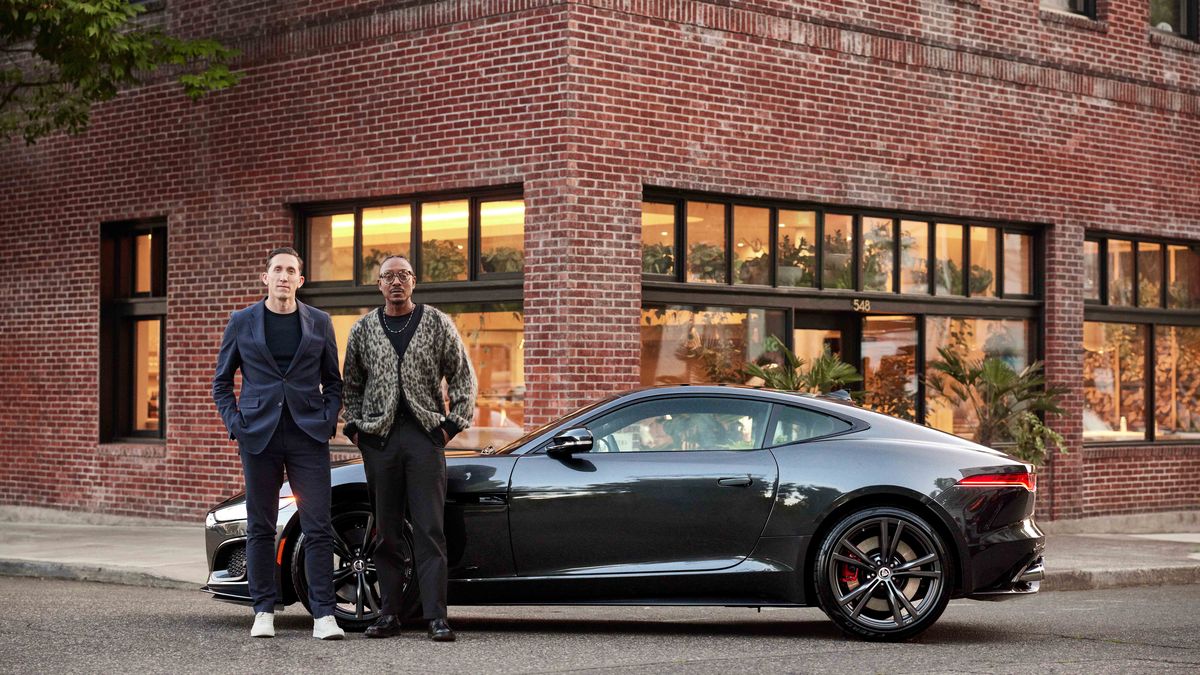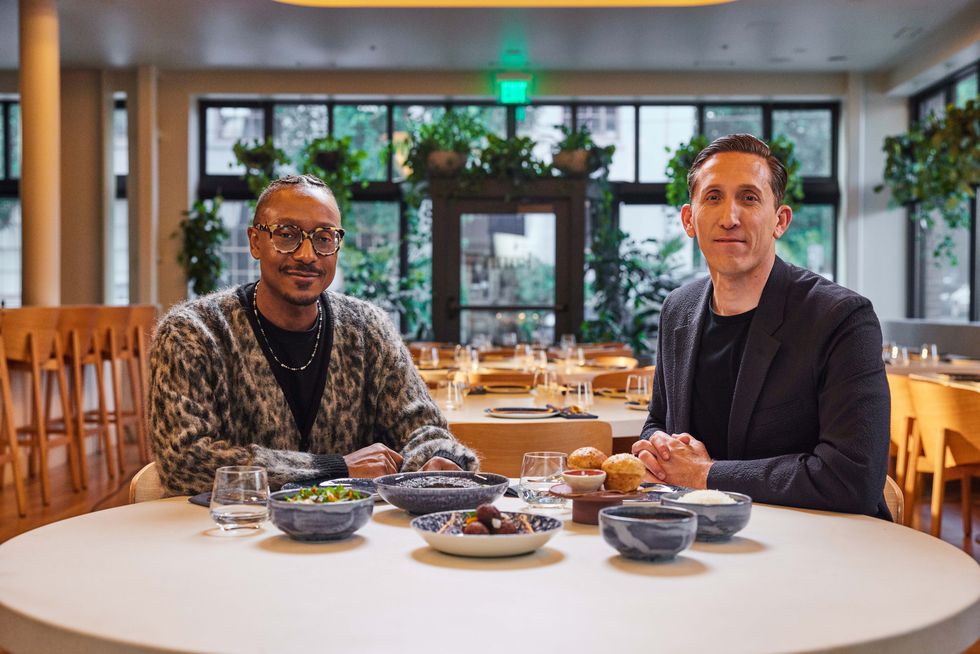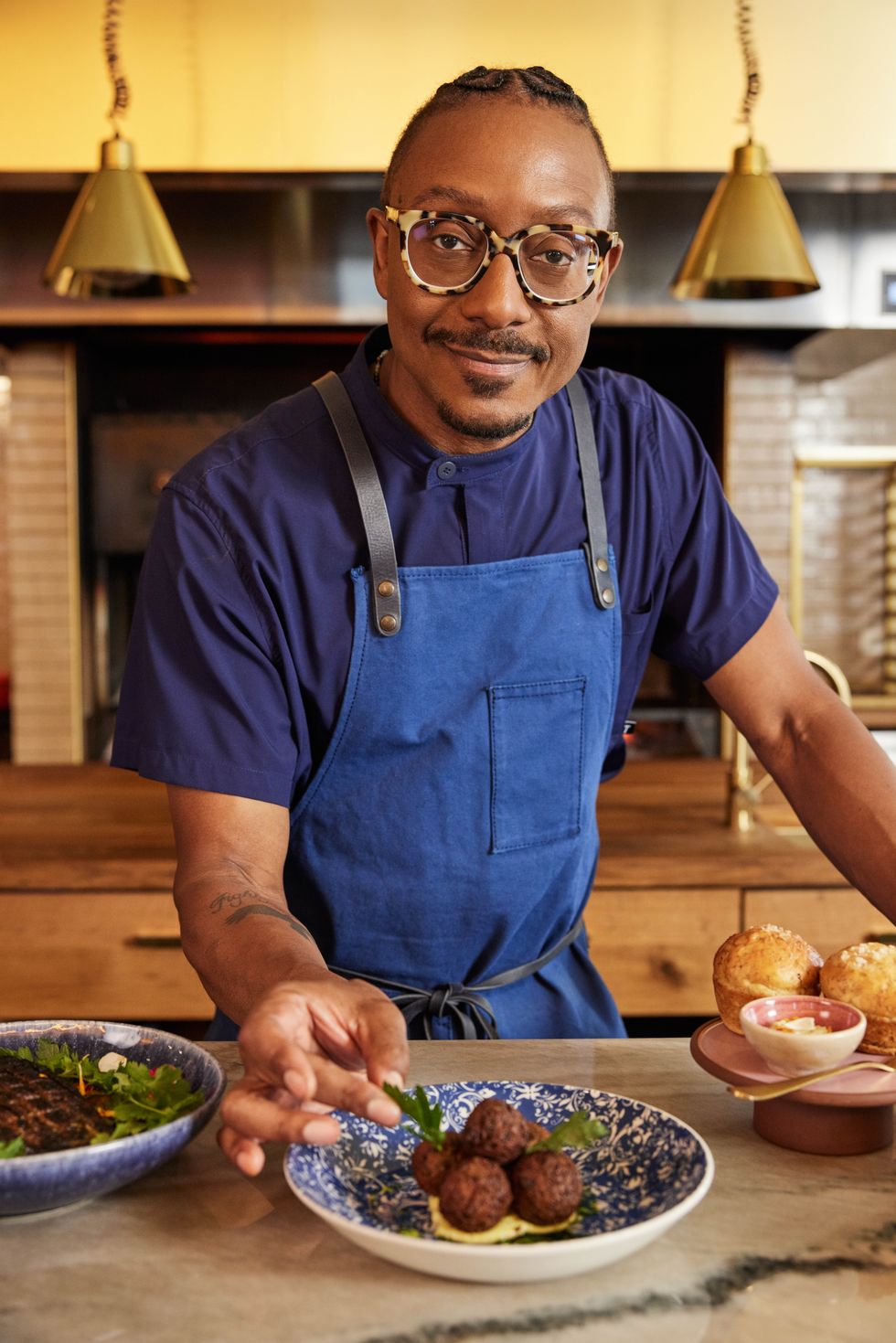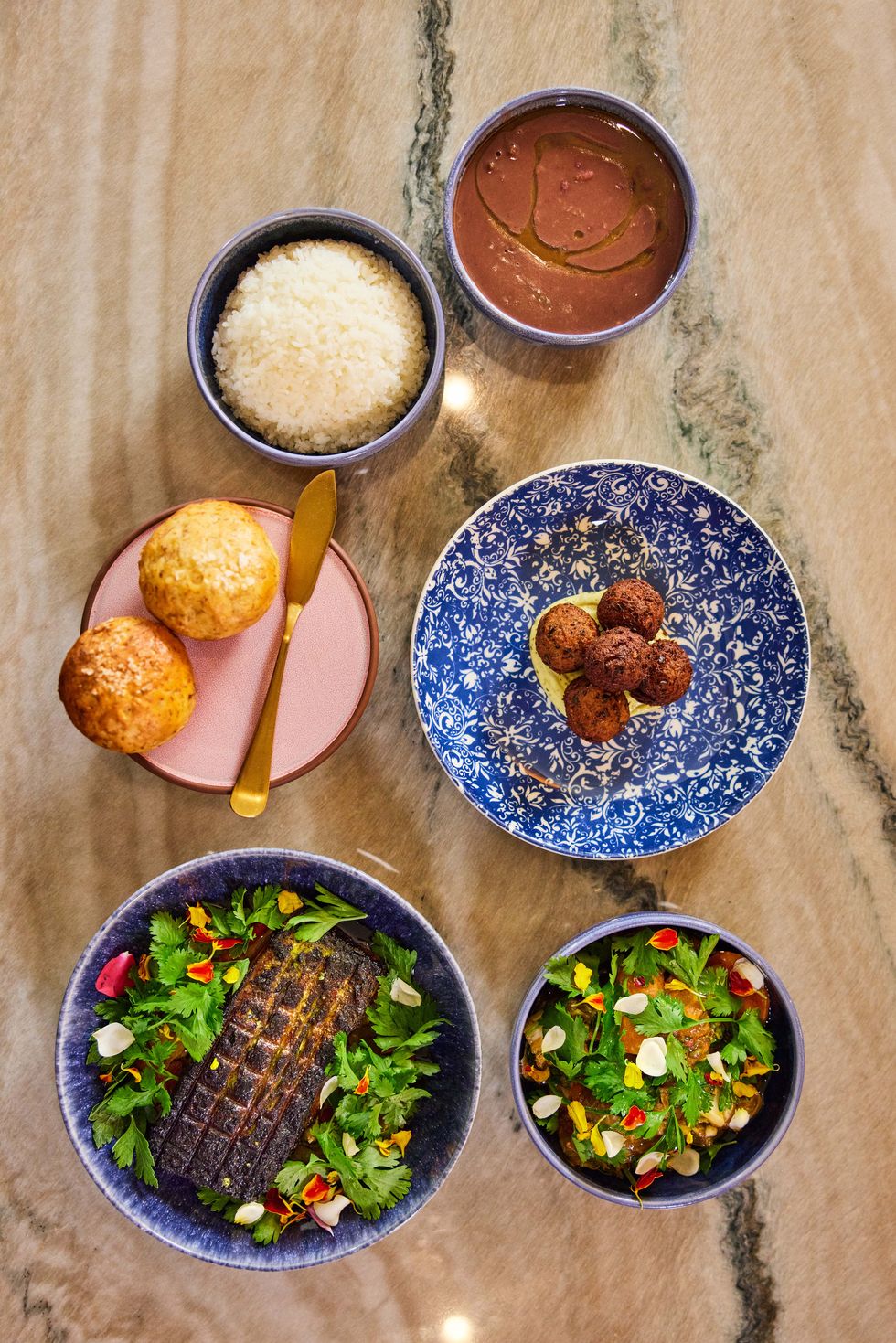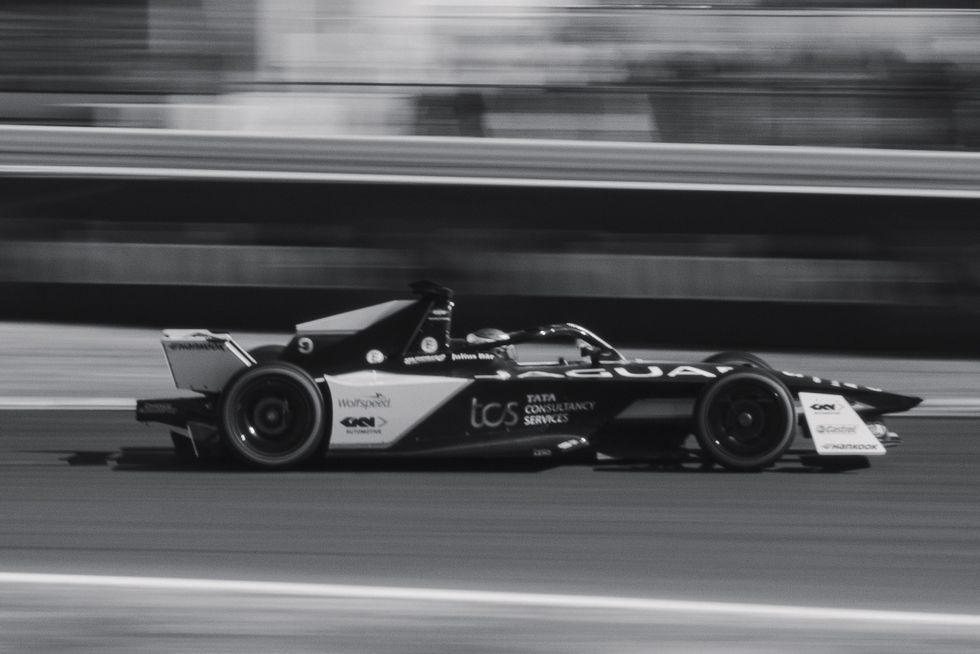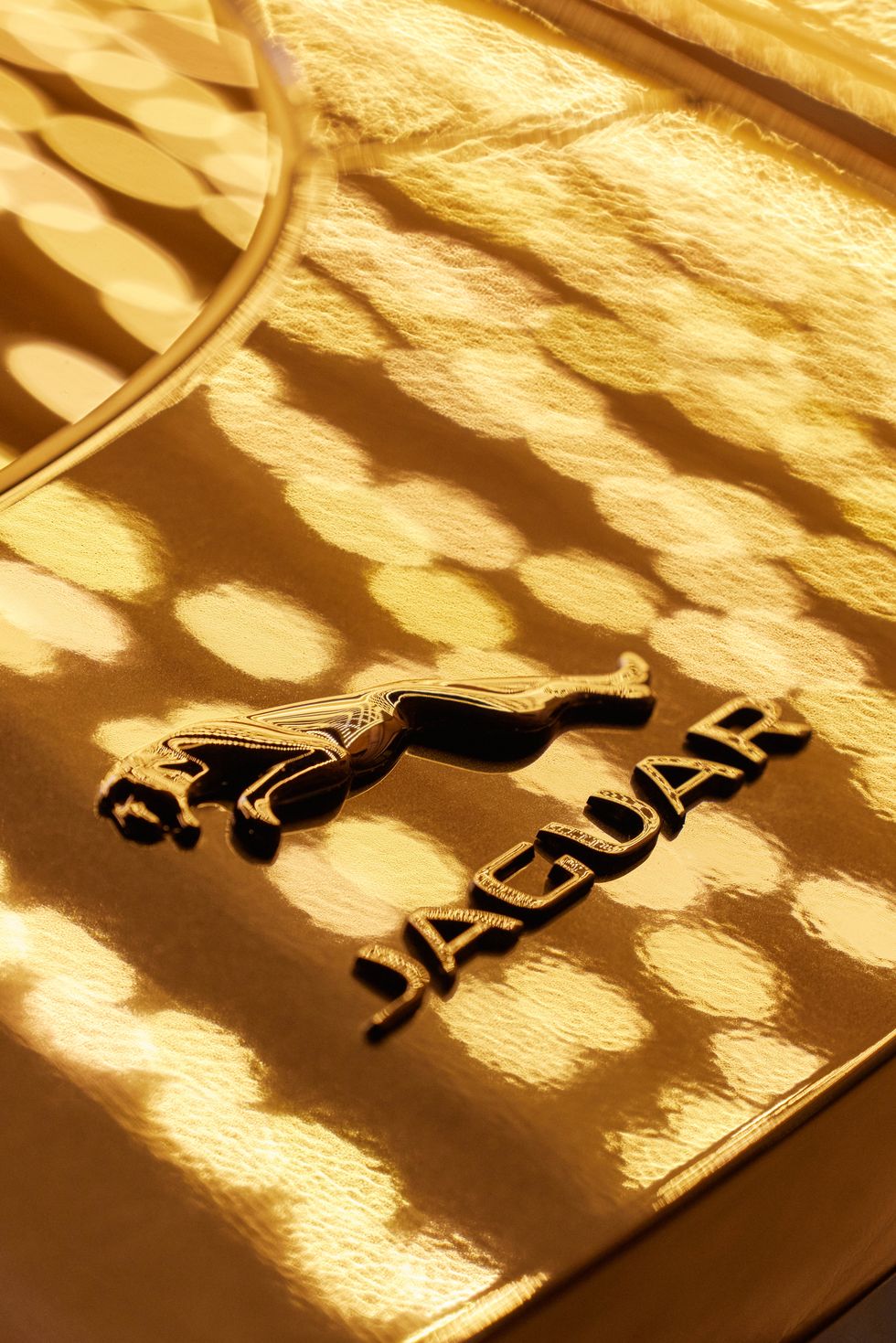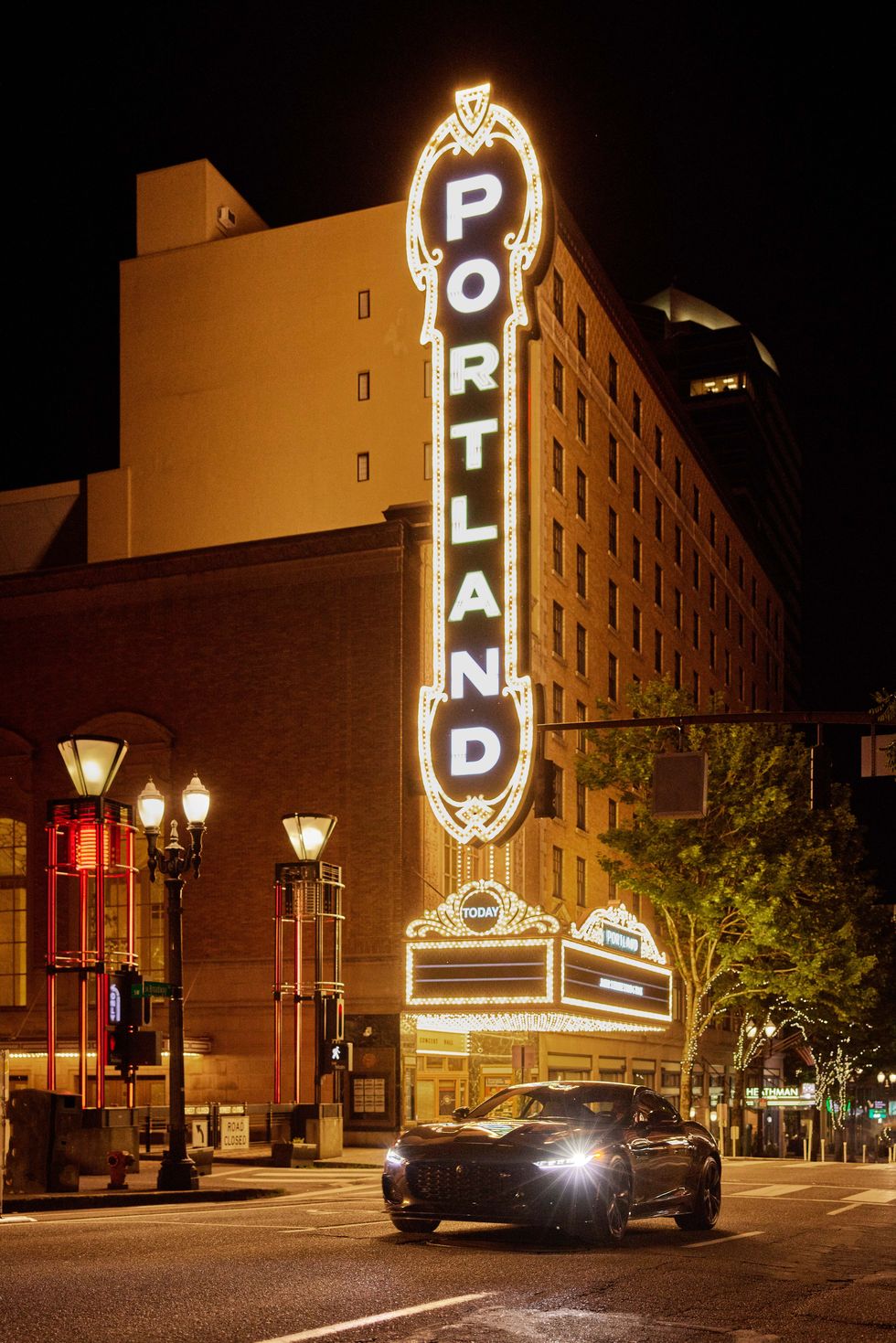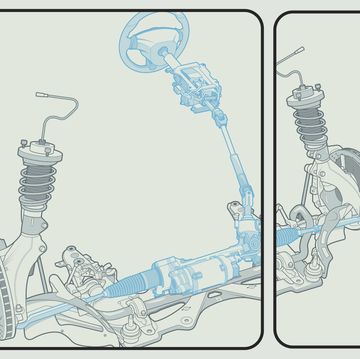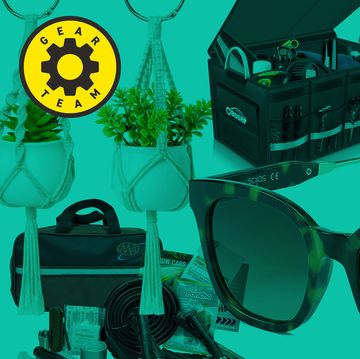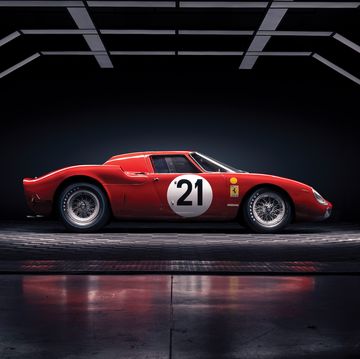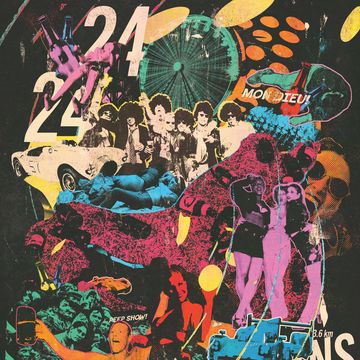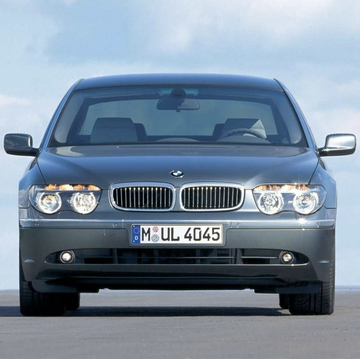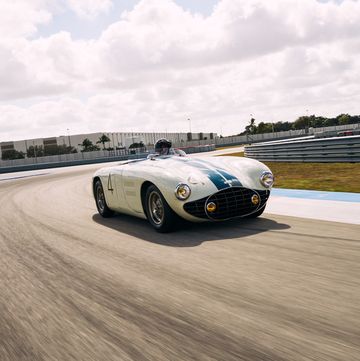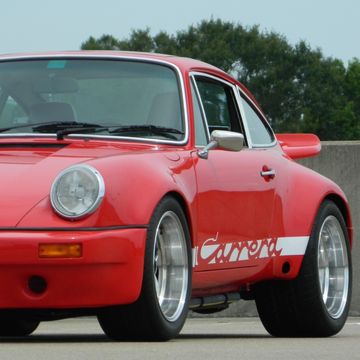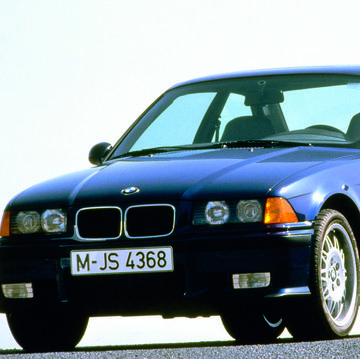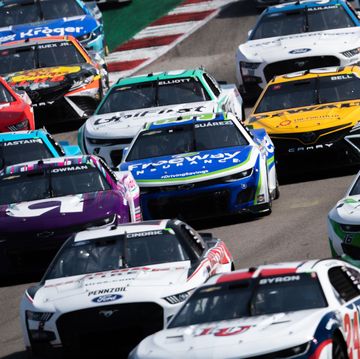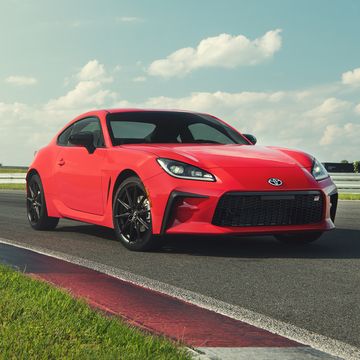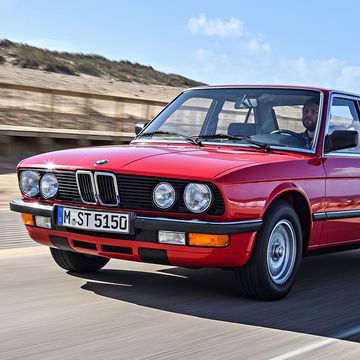Motorsports, and especially open-wheel racing, may seem like such an extraordinary and enigmatic sport. Taking into consideration the extreme design of the vehicles, plus the speed, intensity, and risk associated with racing, some might argue that its athletes must possess superhuman reflexes and skill to even be in contention to compete. But the fact is, however rarefied top-level racing may seem, the fundamentals of motorsports mirror many facets of our everyday life and the experiences we all share on a daily basis. On the eve of the first-ever 2023 Formula E Southwire Portland E-Prix, we brought together Jaguar TCS Racing Team Principal James Barclay and Chef Gregory Gourdet of Portland culinary darlings Kann and Sousòl for a conversation that draws parallels between their apparently different yet surprisingly common experiences.
A Global Influence
Although Barclay and Gourdet hail from seemingly disparate backgrounds and industries, both have the same obligations: Compete to win. Put on a good show. Lead the team to new heights.
Since the Formula E series began in 2014, its mission has been clear—share the allure and energy of open-wheel racing with the masses by bringing the action to them. How? By racing on the streets of some of the world’s greatest cities. Unlike other series powered by gasoline and internal combustion engines, Formula E cars run entirely on electricity, eliminating the pollution and noise concerns that keep most motorsports out of downtown areas.
Fresh off stints in places like Jakarta, Berlin, São Paulo, and Cape Town, the Jaguar TCS Racing team recently took to the new street circuit in Portland, Oregon—marking an entirely new venue, audience, and opportunity for Formula E as a whole. As Team Principal for a relatively young racing series, it is the diversity and global influence of the sport that Barclay hopes to convey to new fans who are eager to catch a glimpse of these land rockets whizzing by. "For me it's that rich culture of racing," he says. "We have a world championship race on five different continents and every time we are racing we're doing it in front of an audience which is completely different—culturally very different. That's a big part of what has always made the sport appeal to me."
For Gourdet, being at the helm of the restaurants Kann and Sousòl is about bringing together his extensive culinary background while paying tribute to the Haitian cuisine he grew up with. "We wanted great things for this restaurant. We truly wanted to create a global restaurant and we are grateful to be in Portland, Oregon—this is our gift to the city. When we were planning and designing and dreaming, we really wanted to create a place where people from all over the world would come and experience Haitian cuisine," Gourdet explains.
Evolving Doors
But the fact that Barclay and Gourdet find themselves in one of the greenest cities in the United States is no coincidence. Each dish dreamt up and served at Kann and Sousòl draws inspiration from the Pan-Caribbean region more than 3000 miles away but the food is sourced sustainably using the bounty and locality of the Pacific Northwest region whenever possible. And while sustainability is a core mission for both of Gourdet’s establishments, it extends much further than the menu. "I think holistically, from the food to what we strive to do for ourselves, sustainability is something that we strive for every day here," says Gourdet.
Which is why Formula E and Jaguar TCS Racing’s inaugural debut in Portland is a purposeful alignment. Not only is Formula E the world’s first, net carbon-zero sport, it showcases the world’s most sustainable race cars. In particular, the Jaguar I-TYPE6 is at the forefront of a cascade of evolution and innovation for electric vehicles. Jaguar uses its I-TYPE6 race car as a real-world test bed to bring what it learns on the Formula E championship to its road cars—zeroing in on its plans to craft a modern, all-electric lineup by 2025.
"Sustainability looks to be a really key part of what you do here and for us in our sport, we are the world's first and only electric world championship. We are taking the rule book and rewriting it—that’s the innovation right there," Barclay motions to Gourdet.
Of course, both figures’ successes in their fields are largely a testament to the teams they’ve assembled. And their styles of inspiring and leading others share a similar sentiment—fostering excellence in the heat of the moment. "Throughout the course of the race, we're in a high speed game of chess," says Barclay. "We have to make the right decisions to come out on top of 20 other drivers and 11 other teams, so it's constantly that pinpoint of pressure, but our job is to try and make a very high pressure situation, actually a very calm environment."
Gourdet equates the heat and fast-paced environment of the kitchen line to the pressures that Barclay and his team are under on race days. "I mean, for us it's definitely high stakes. Not as insane and fast as racing a car, but there's fire, there's knives involved, and we're always fighting the clock—demonstrating technique, proper flavor—so there's definitely that element of time, precision, and being able to make smart decisions in a very quick moment," echoes Gourdet. "There's precision throughout the kitchen—just as there is precision in those turns and tight moments on the course."
"When you're trying to beat world-class competition," adds Barclay, "you have to dig deeper than you've ever dug before. And that is both at the human level, but also the technical level—the innovation, the evolution of the technology. If you're not constantly changing and evolving, you get left behind. We know what we have to do to be successful, but statistically teams lose more than they win, so having the clear vision of what you're aiming for, but also having the culture within the team that can sustain the lows, while staying motivated, improving, and constantly evolving to achieve that vision—that's a really big part for us."
Pole Positions and Podium Finishes
This year, Gourdet’s restaurant Kann and its subterranean bar beneath, Sousòl, have been named Esquire’s Best New Restaurant and one of the Best Bars in America, respectively—clinching two highly coveted accolades or back-to-back podium finishes, if you will. But Gourdet is not complacent with the wins. He’s always looking for new ways to inspire and push the boundaries of innovation.
In 2019, Jaguar TCS Racing secured their first win in Rome and most recently put down the fastest lap at the Portland E-Prix, with Mitch Evans climbing 16 spots from starting in the back of the grid. He just missed a podium finish.
Since Barclay started in the Formula E series with Jaguar, he’s led the team to 5 poles, 28 podiums, and 10 wins. As the rest of the Formula E season presses on Jaguar TCS Racing is in a good position to secure a drivers’ or constructors’ championship, if not both. "Our job, when we look at research and development, is how can you take the same problem but come up with a new way that improves performance? We have that same thought-starter of what are the core ingredients? How do we get the right ingredients together to have an even better outcome? We are constantly assessing those core ingredients and sometimes you get it right, sometimes you get it wrong." shrugs Barclay. "The days we lose are an opportunity to learn and we can become better from that. Sometimes when you win, you've executed a perfect race, there's not much you can do better but the irony is, in our world, we probably learn more on the days we lose and look at what our competitors have done. But it's important on the days when you win, you can also be self-critical and analyze and be hungry."

